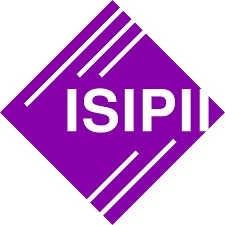Analisis bibliometrik tren penelitian human rights dalam lingkup e-commerce di Indonesia
Abstract
Human rights in e-commerce demand a legal system capable of providing simultaneous and comprehensive protection to consumers. In the digital age, consumers face various risks, such as personal data theft, algorithm manipulation, and unequal access to digital services. Therefore, scientific studies on this issue are crucial in encouraging the development of responsive and inclusive policies. Bibliometric analysis of previous research aims to provide in-depth insights into the development of this theme. Additionally, this analysis can help identify the main contributions of researchers and discover research gaps that can be filled to further develop knowledge. This research aims to identify global research patterns, major themes, and new opportunities that can support the development of a more effective and adaptive legal system in the face of digital age challenges. This study employs a mixed-methods approach, utilizing quantitative methods for bibliometric analysis of lens.org search metadata and qualitative methods through comparisons with Supreme Court decisions. The results show a significant increase in the number of publications in this field since 2005, peaking in 2017. This reflects the growing attention to consumer rights issues in e-commerce. The most productive country in this research is the United Kingdom with 3,395 journals, while the institution with the largest contribution is the University of Edinburgh. Furthermore, a research gap was identified regarding the development of a global legal framework that is adaptive to the challenges of the digital age. These findings guide researchers and policymakers to direct future research and formulate comprehensive policies to protect consumer rights in e-commerce.
Keywords
Full Text:
PDFReferences
Abib, A. S., Kridasaksana, D., & Nuswanto, A. H. (2015). Penerapan klausula baku dalam melindungi konsumen pada perjanjian jual beli melalui e-commerce. Jurnal Dinamika Sosial Budaya, 17(1), 122–136. https://doi.org/10.26623/jdsb.v17i1.508
Adiputera, Y., & Missbach, A. (2021). Indonesia’s foreign policy regarding the forced displacement of Rohingya refugees: Muslim solidarity, humanitarianism, and non-interventionism. Asia-Pacific Journal on Human Rights and the Law, 22(1), 69–95. https://doi.org/10.1163/15718158-22010002
Ali, Y., Sharma, A., Haque, M. M., Zheng, Z., & Saifuzzaman, M. (2020). The impact of the connected environment on driving behavior and safety: A driving simulator study. Accident; Analysis and Prevention, 144, 105643. https://doi.org/10.1016/j.aap.2020.105643
Amirulloh, M. (2017). Penggunaan nama kota sebagai nama domain di Indonesia. Sosiohumaniora: Jurnal Imu-Ilmu Sosial Dan Humaniora, 19(1), 8–17. https://doi.org/10.24198/sosiohumaniora.v19i1.11415
Andry, J. F., & Loisa, J. (2016). The e-commerce potential for home-based businesses: A case study. Jurnal Ilmiah Fifo, 8(2), 139–146. https://doi.org/10.22441/fifo.v8i2.1308
Anggraeni, S., & Ramadhani, E. R. (2022). Uncertainty of the right to health in Indonesia during Covid-19 pandemic. Journal of Southeast Asian Human Rights, 6(1), 55–71. https://doi.org/10.19184/jseahr.v6i1.30743
Anjani, S., Rizal, E., & Saepudin, E. (2024). Proses digitisasi karya ilmiah lama di Perpustakaan Fakultas Pertanian Universitas Padjadjaran. Informatio: Journal of Library and Information Science, 4(1), 33–50. https://doi.org/10.24198/inf.v4i1.48759
Ashri, M. (2019). Reconciliation of humanitarian law and human rights law in armed conflict. Hasanuddin Law Review, 5(2), 209–219. https://doi.org/10.20956/halrev.v5i2.1348
Azhargany, R. (2020). Dakwah mengenai hak asasi manusia (HAM) di Indonesia dalam konsep maslahah mursalah. Dakwatuna: Jurnal Dakwah Dan Komunikasi Islam, 6(2), 176–197. https://doi.org/10.36835/dakwatuna.v6i2.630
Baker, A. (2021). From eviction to evicting: Rethinking the technologies, lives and power sustaining displacement. Progress in Human Geography, 45(4), 796–813. https://doi.org/10.1177/0309132520910798
Bintari, A., & Djustiana, N. (2015). Upaya penanganan korban dan pencegahan tindak perdagangan orang (human trafficking) di Kabupaten Indramayu Provinsi Jawa Barat. CosmoGov: Jurnal Ilmu Pemerintahan, 1(1), 124–148. https://doi.org/10.24198/cosmogov.v1i1.11803
Brookes, G. K., & Thompson, T. (2019). The impact of personal perception on the identification of tattoo pattern in human identification. Journal of Forensic and Legal Medicine, 64, 34–41. https://doi.org/10.1016/j.jflm.2019.03.002
Chen, J., & Burgess, P. (2018). The boundaries of legal personhood: How spontaneous intelligence can problematise differences between humans, artificial intelligence, companies and animals. Artificial Intelligence and Law, 27(1), 73–92. https://doi.org/10.1007/s10506-018-9229-x
Conceição, L. D., Masotti, A. S., Forgie, A. H., & Leite, F. R. M. (2019). New fluorescence and reflectance analyses to aid dental material detection in human identification. Forensic Science International, 305, 110032. https://doi.org/10.1016/j.forsciint.2019.110032
Jamiludin, Rabihatun, I., & Samad, S. (2016). Weaving crafts on muna community (a case study of the role of human capital and social capital in cultural reproduction of weaving at muna regency). Mediterranean Journal of Social Sciences, 7(3), 53–61. https://doi.org/10.5901/mjss.2016.v7n3s1p53
Jurda, M., Urbanová, P., & Chmelík, J. (2019). Digital restoration of fragmentary human skeletal remains: Testing the feasibility of virtual reality. Journal of Forensic and Legal Medicine, 66, 50–57. https://doi.org/10.1016/j.jflm.2019.06.005
Latief, P. V., Syarief, R., & Hasbullah, R. (2019). Analisis strategi pengembangan bisnis e-commerce pertamina retail dengan pendekatan bisnis model kanvas. Manajemen IKM: Jurnal Manajemen Pengembangan Industri Kecil Menengah, 14(1), 24–34. https://doi.org/10.29244/mikm.14.1.24-34
Maulany, R. (2019). Obstacles to e-commerce implementation in Indonesian communities. 11th International Scholars Conference, 7(1), 1842–1854. https://doi.org/10.35974/isc.v7i1.2007
Prakasa, S. U. W., & Supriyono, A. (2020). Pendampingan hukum UMKM berbasis e-commerce di Desa Jarak, Kec. Wonosalam, Jombang. Humanism : Jurnal Pengabdian Masyarakat, 1(1), 23–30. https://doi.org/10.30651/hm.v1i1.4543
Qorahman, O., & Akbar, N. N. (2024). A bibliometric analysis of the of cybersecurity policy research. Informatio: Journal of Library and Information Science, 4(1), 65–78. https://doi.org/10.24198/inf.v4i1.52033
Republik Indonesia. (1999). Undang-undang (UU) nomor 39 tahun 1999 tentang hak asasi manusia. Jakarta. Retrieved from https://www.komnasham.go.id/files/1475231474-uu-nomor-39-tahun-1999-tentang-%24H9FVDS.pdf
Wulandari, Y. S. (2018). Perlindungan hukum bagi konsumen terhadap transaksi jual beli e-commerce. Ajudikasi : Jurnal Ilmu Hukum, 2(2), 199–210. https://doi.org/10.30656/ajudikasi.v2i2.687
DOI: https://doi.org/10.24198/inf.v5i1.58126
Refbacks
- There are currently no refbacks.
Copyright (c) 2025 Author

This work is licensed under a Creative Commons Attribution-ShareAlike 4.0 International License.
Informatio Indexed by:
Editorial Office :
Library and Information Science Study Program, Building 3 Floor 2, Faculty of Communication Science, Universitas Padjadjaran
Jl. Raya Bandung Sumedang Km. 21 Jatinangor, Sumedang 45363
Principal Contact :
Phone : 08122184219
Email : rully.khairul@unpad.ac.id

 ,
,




2.png)


